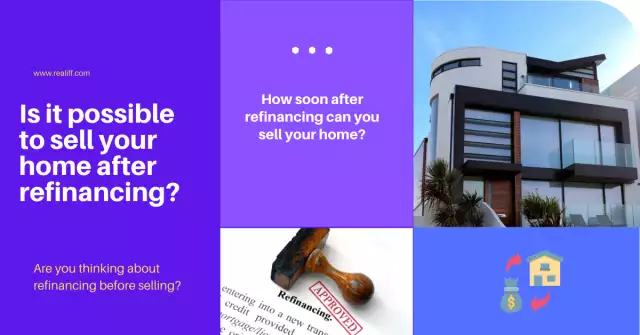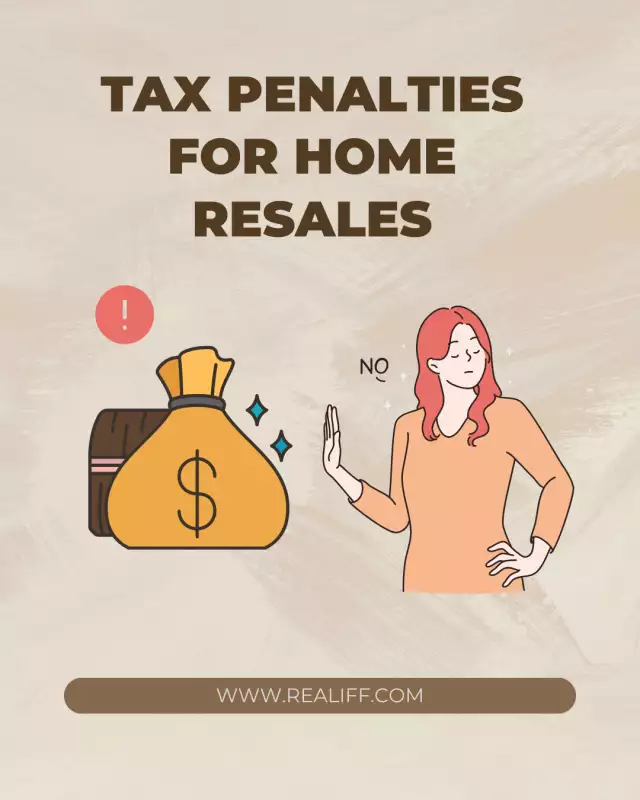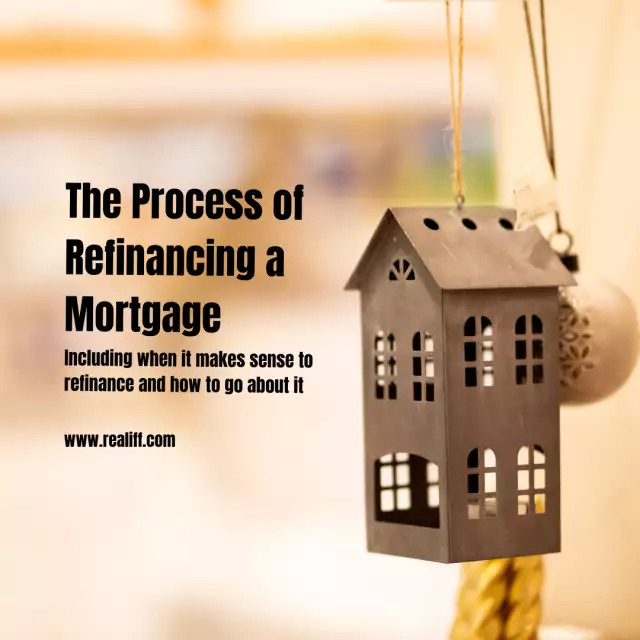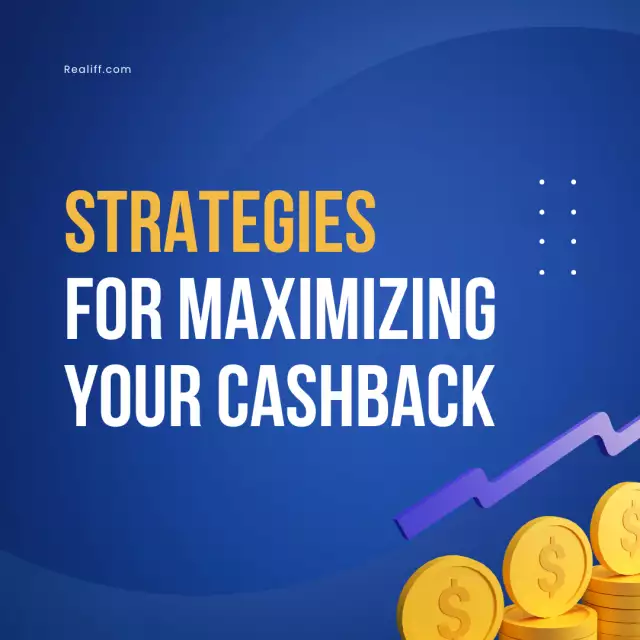Is it possible to avoid capital gains taxes when selling a second home?
Is it possible to avoid capital gains taxes when selling a second home?
Many people buy second houses for personal as well as financial reasons. Some homeowners seek a weekend hideaway where they can unwind. Other buyers intend to rent out the area and utilize the rental income to increase their fortune.
However, there may come a moment when you need or want to sell your second house. While you can profit from the sale of your home, especially if its value has improved over time, you will almost certainly be subject to capital gains tax. Fortunately, you may plan for these taxes and even take efforts to reduce their impact. Before you decide to sell your second property, here's what you should know about capital gains taxes.
What Exactly is a capital gains tax?
When you sell the property for a profit, the IRS counts that profit as taxable income. Any profits (gains) you made as a result of the appreciation of the property you sold are subject to capital gains tax. The capital gains tax does not only apply to real estate. It can also be applied to the purchase of other high-priced items, such as a boat or luxury vehicle.
For example, if you purchased a $400,000 home and later sold it for $500,000, your taxable capital gain on that transaction is $100,000. That is the amount taxed by the IRS. This is a simplified example intended to demonstrate how the tax works. Other costs and expenses related to selling the home can also be deducted. If you paid a 6% Realtor commission on the sale ($30,000 on a $500,000 listing), your taxable profits would be $70,000. If you spent $6,000 on renovations before selling the house, your taxable profits are reduced to $64,000.
The capital gains tax, like income tax, is not a flat fee. It is instead a percentage of the profit. The percentage will vary depending on your tax bracket.
Some states also levy a state capital gains tax. As of February 2021, the following states have no capital gains tax:
- Alaska
- Florida
- Nevada
- New Hampshire
- South Dakota
- Tennessee
- Texas
- Washington
- Wyoming
Selling a Primary Residence Vs. Selling a Second Home
If you sold your principal dwelling, you will very certainly pay very little or no tax. This is due to the IRS's primary residence exemption from capital gains taxes. If you are single, you can deduct up to $250,000 from the sale of your primary residence. You can deduct $500,000 if you're married and filing jointly.
You cannot, however, exclude a second home, whether it is a vacation home or a rental property. When you sell your second home, you must pay capital gains tax. Your taxes will be either a short-term capital gains tax or a long-term capital gains tax, depending on how long you've owned your second home.
Short-Term Capital Gains Tax
If you sell an investment property that you have owned for less than a year, the short-term capital gains tax will apply. It will be taxed along with the rest of your annual income. This can be as much as 37% of the gains, depending on your tax bracket.
The short-term fee is intended to punish home flippers and other professionals who acquire and sell items quickly. For example, an investor can buy a property, fix it up, and resell it within a year for a profit. These gains are taxed. Other resellers, from persons who unearth rare antiques to mechanics who fix up custom vehicles and motorcycles, are subject to the short-term capital gains tax.
Long-Term Capital Gains Tax
If, on the other hand, you are selling a second home that you have held for more than a year, the capital gains tax will be lower than your income tax level. Long-term capital gains are taxed at 0%, 15%, or 20% in 2022, depending on your income.
You can estimate capital gains taxes on a second house using online tools. SmartAsset features a simple tool where you may enter the initial value of the property, the sale value, the term of ownership, and your income. The site will then break down the various taxes you must pay and provide money-saving ideas. Even knowing your expected capital gains tax will help you file correctly in the spring.
2022 Long-Term Capital Gains Tax Rates Per Bracket
Your long-term capital gains tax rate will be determined by your income as well as your filing status. Here's what you need to know if you're filing in 2023 for the fiscal year 2022.
If you meet one of the following criteria, your tax rate is zero percent:
- You are single and made under $41,675
- Are married (filing jointly) and made under $83,350
- Are married (filing separately) and made under $41,675
- You are the head of the household and made under $55,800
If you meet one of the following criteria, your tax rate is reduced to 15%:
- You are single and earn between $41,676 and $459,750 per year.
- Are married (filing jointly) and have an annual income of $83,351 to $517,200
- Are married (filing separately) and earn between $41,676 and $258,600 per year
- You earned between $55,801 and $488,500 as the head of the household.
If you meet one of the following criteria, you will pay a 20% tax rate:
- You are a single person who earned more than $459,750.
- Are married (filing jointly) and have a combined income of more than $517,200
- Are married (filing separately) and have a combined income of more than $258,600
- You are the head of the household and have a salary of more than $488,500.
Can I sell my second home and not have to pay capital gains taxes?
You may be able to avoid paying some or all of your capital gains taxes. There are, however, very strict guidelines that you must follow.
Minimize Your Net Profit
If you paid $200,000 for your second house and sold it for $300,000, your taxable capital gain is $100,000, correct? Certainly not! The crucial point here is that the capital gains tax on the sale of a second house is based on the net profit, not the difference between the purchase and sale prices.
Any money spent renovating or repairing your second house might be deducted from your profit. If you install a new roof for $10,000, your taxable gain is reduced to $90,000.
You can also deduct the expenditures of buying and selling your second house. Realtor commissions, inspection costs, and so on. Assume you paid $5,000 in acquisition fees and $20,000 in agent commissions and other expenses at the time of sale. Then subtract another $25,000 from your profit. Your taxable capital gain has been reduced to $65,000.
This does not imply that you should spend all of your profits on remodeling. It does, however, imply that you should carefully save your receipts and keep meticulous track of your spending during this procedure. You will want to submit your taxes correctly, and you may need to verify the legitimacy of these expenses if your taxes are audited.
Make Your Second Home Your Primary Residence
Remember that you only have to pay the capital gains tax if you sell a second house. What is the distinction between a primary residence and a secondary residence? To qualify as your primary residence, you must have resided in it for two of the previous five years, which do not have to be consecutive. If you lived in the house for 18 months when you first bought it and it has been less than five years, you simply need to live there for six months more for it to be deemed your primary residence.
Living at your second house for an extended amount of time may not be desirable for a variety of reasons, including its location, size, and so on. However, if you can swing it, you may be able to save a significant amount of money on taxes. To qualify, you must not have used the primary residence exemption in the previous two years. If you sold your primary house in the previous year, you may have to wait two years before selling this home and qualifying for the exemption.
During this time, you should also collect proof that the house was your principal residence. Again, this safeguards you in the unlikely case of an audit. A sworn statement indicating the home is your principal residence, as well as formal documents such as a driver's license or tax filings with the address mentioned, can be used as evidence.
Consider a 1031 Exchange
What are you going to do with the proceeds from your second home? If you don't need the money right away, you can use it to buy another second home. This is referred to as a 1031 exchange. When this occurs, you will not be required to pay taxes on the profit from the sale.
What are the rules for a 1031 Exchange?
The first set of requirements concerns the profit from the home's sale.
- You are not permitted to touch the earnings from the sale of the second residence. The funds must be deposited directly into an escrow account.
- There is a 45-day window after the first property is sold to find the next property and make an offer.
- The second property must be closed within 180 days of the first.
If any of those conditions are not met, you must pay capital gains tax on the sale of your second residence. Furthermore, a 1031 exchange can only occur between two rental units. A home must meet the following criteria in order to be classified as a rental property:
- You must have owned the property for at least two years.
- In each of the previous two years, you must have rented the property for at least 14 days.
- The property cannot be used as a vacation home for more than 14 days, or 10% of the total number of days rented in the previous two years.
For the first two years that you possess the replacement property, the same standards must be met.
Whether it's a vacation home or a rental property, owning a second property can be a rewarding investment. Just make sure you're ready to pay the capital gains tax on the sale of a second house when the time comes.
Let a Realiff Network Agent Help You Find Your Dream Vacation Home.
If you are considering selling your second property, a Realiff Network Realtor can assist you. When you use our free service, you will receive proposals from top-tier local real estate agents eager to work with you. You can compare proposals to save on commission, read current reviews, and choose the agent best suited to your real estate needs. Furthermore, you are never required to select the agents we propose. Realiff is a low-stress, low-pressure approach to locating the ideal Realtor for you. Try out our services right now.







